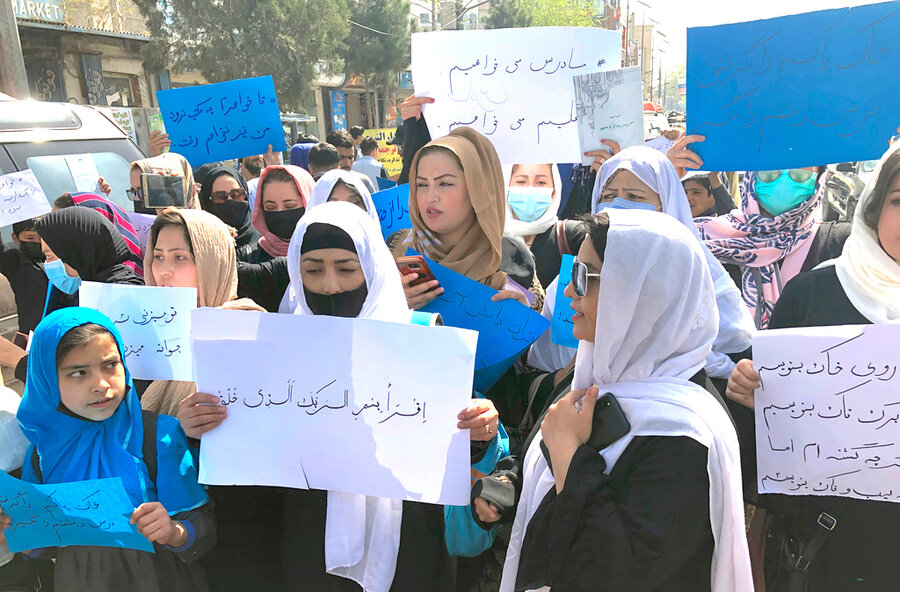Neighborly headwinds for the Taliban
Loading...
The ruling Taliban in Afghanistan took another step on Tuesday toward limiting the place of women by banning them from working for United Nations agencies in Afghan society. Two days earlier, the government in neighboring Iran decreed that all state universities must bar female students from their classrooms if they are not wearing traditional headscarves known as hijabs.
There was a time when measures denying women equal rights would hardly have raised an eyebrow in Central Asia – a region where women face persistent domestic violence, and a “high prevalence of restrictive gender norms” undermines female participation in education and economic activity, according to the World Bank.
Yet there are signs that those norms are cracking. Across the region, civil society groups devoted to gender equality are growing more numerous and vocal. And in one sign that the Taliban’s violent reversal of rights for girls and women in Afghanistan is resonating poorly, Kazakhstan, Kyrgyzstan, and Uzbekistan have opened their schools to Afghan girls under a scholarship program funded by the European Union.
“All Central Asian countries face similar problems in the field of gender equality,” said Madina Jarbussynova, a former Kazakh diplomat now serving as consultant to the U.N. on women’s issues. She told The Astana Times that “there is a need to deepen processes of removing obstacles to the full involvement of women in economic, social, and political spheres of development.”
Her country is setting the pace. In 2020, Kazakhstan adopted quotas requiring that at least 30% of any political party’s candidates for Parliament or local assemblies had to be female. The new rule had two motives: to boost the country’s credibility in international economic blocs and to ensure that more politicians understood the needs of women and youth.
Since then, the country has joined international campaigns against gender-based violence, eliminated an official list limiting women to certain jobs, opened entrepreneurship development centers for women across the country, and created the region’s first ministry for women’s economic development. More than 30% of Kazakhstan’s tech students are now female. So are 45% of small-business owners in the country. The country rose 15 places in the World Economic Forum’s Global Gender Gap Report.
Elsewhere in the region, Uzbekistan has created programs and scholarships to boost education for girls in science and engineering. Last month, Kyrgyzstan hosted an international conference including governments, civil society groups, and educators on harnessing digital data to promote gender equality in education and employment.
Initiatives like these reflect a region attempting to bridge its traditional social norms with a more modern recognition that women are essential to economic development – a process that one Uzbek teacher argued should result in “all the conditions for the full support of women ... to reveal their talents and aspirations.” That message may be getting harder for the Taliban to ignore.





